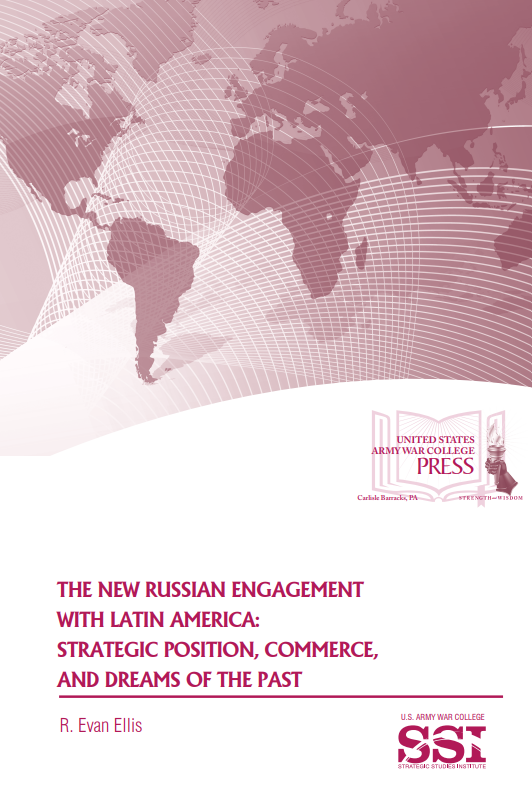 Author: Dr R Evan Ellis
Author: Dr R Evan Ellis
View the Executive Summary
In many ways, Russia’s expanded engagement in Latin America as a response to escalating tension over the Ukraine was a repetition of its answer to U.S. involvement in the 2008 conflict in the former Soviet Republic of Georgia. In the latter conflict, the U.S. deployed naval forces to the Black Sea in response to Russian support for the breakaway republics of Abkhazia and South Ossetia. Russia countered with a series of actions in Latin America, including sending nuclear-capable Tu-160 bombers to Venezuela, from where they conducted symbolically-charged flights around the Caribbean. A month later, a four-ship Russian naval flotilla deployed to the area to conduct military exercises with the Venezuelan navy before making port calls in Cuba and Nicaragua. In November 2008, Russian President Dmitri Medvedev traveled to Latin America to participate in the leadership summit of the Bolivarian Alliance for the Americas, then subsequently hosted both Venezuelan President Hugo Chavez and Nicaraguan President Daniel Ortega in Moscow. Three months later, Bolivian President Evo Morales also traveled to Russia, followed in November 2009 by Ecuadorian President Rafael Correa. Very little beyond journalistic accounts have been written to examine contemporary Russian activities in Latin America and the Caribbean. As Russia’s reassertion of its global position and associated tensions with the United States proceed, a broad understanding of Russia in the Americas becomes ever more important, both as a question of U.S. national security and as an important dynamic shaping the global geopolitical environment. This monograph focuses on the character of the ongoing Russian re-engagement with Latin America and the Caribbean and its implications for the U.S.